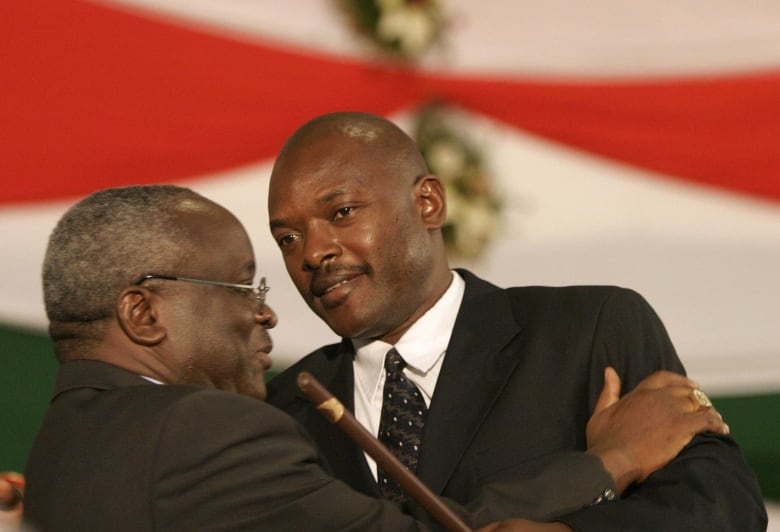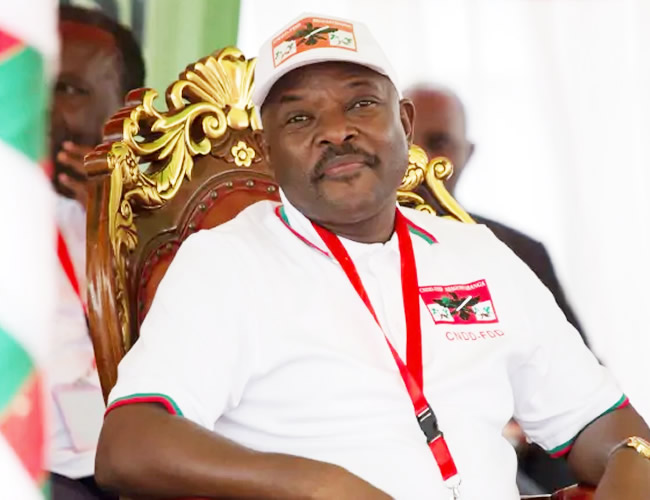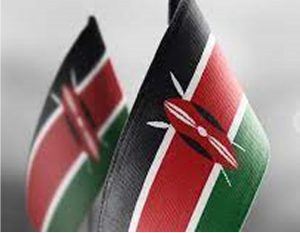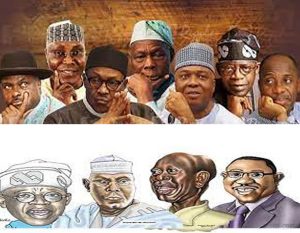Nkurunziza was to step down for his handpicked ally in August after 15 years in power
Burundi’s outgoing President Pierre Nkurunziza has died, the government of the central African country announced in a statement posted on Twitter.
The government statement said that Nkurunziza, 56, had died of a heart attack.
Nkurunziza, who has faced accusations of political repression at home and abroad, announced he was stepping down this year after 15 years in office, although the former rebel leader was expected to remain a prominent force in the poor East African country.
He came to power at the end of Burundi’s 12-year civil war, which killed 300,000 people and was driven by similar ethnic tensions as the 1994 genocide in neighbouring Rwanda, where Hutu extremists slaughtered 800,000 Tutsis and moderate Hutus.
When he stood for a third time in 2015, opponents said it violated a two-term constitutional limit. His supporters beat, tortured and executed activists, suspected opponents and journalists.

After he foiled an attempted coup, more than 1,000 Burundians were killed in clashes with security forces and more than 400,000 fled abroad. The economy was ruined. Donors cut aid.
Opponents boycotted the 2015 poll, accusing the government of election abuses and rights violations, charges it denied.
In this year’s election, Nkurunziza nominated retired army general Evariste Ndayishimiye as candidate for the ruling CNDD-FDD party.
Ndayishimiye won the May vote, which was panned by opposition parties as being fraudulent and lacked international monitors.
Burundi said most election observers would have to undergo a 14-day quarantine. Journalists said they faced constant threat of arrest or attack, and many fled the country, while some civil society organizations have been closed.
The government shut the United Nations human rights office last year after its repeated criticism that the youth wing of the ruling party and security services were torturing, gang-raping and murdering political opponents.
Burundi’s courts upheld Ndayishimiye’s victory earlier this week, and his swearing-in is scheduled for August.
The government said Tuesday there would be a week of mourning for Nkurunziza’s death.
Rose to power amid deadly Hutu-Tutsi clashes
A former sports teacher at a university, Nkurunziza was a lifelong fitness and football enthusiast and an evangelical Christian.
He lost his father, a civil servant, during mass killings of ethnic Hutus by the majority Tutsi army in 1972. He has frequently spoken about the misery his family suffered after his father’s death.
“We became orphans and led a hard life,” he said. “They [the killers] took all nice stuff from the house, which plunged the family into desolation.”
During the civil war, he fought in the rebel group that became the ruling party, first becoming a minister in a transitional government in 2003 before parliament elected him president in 2005.
A few relatively peaceful years followed. A curfew in place since 1972 was lifted in 2006. Burundian soldiers joined an African Union peacekeeping force in Somalia. The Paris Club group of creditors cancelled Burundi’s debt in 2009.
But after the foiled coup in 2015, Nkurunziza became increasingly isolated. He only left Burundi for a single day trip to neighbouring Tanzania, which hosts more than 200,000 Burundian refugees.
Nkurunziza’s government rejected reports of its abuses by the United Nations and other international groups.
Burundi quit the International Criminal Court in 2017, the first African country to do so, after the court said it would investigate violence in the country.
In 2019, declaring it had made sufficient progress in human rights, the government forced the United Nations to shut its local human rights office after 23 years. Schoolgirls who defaced the president’s portrait were arrested. The same year, a United Nations report documented abuses by the security forces and youth wing of the ruling party.
“Bodies are regularly found in public places … many people disappear,” the report said, noting rape by ruling party activists was common. “Some of these rapes were committed at night in victims’ homes, in front of their children.”
After some Western governments suspended budget support to the government, Burundi forced all citizens to pay mandatory public “contributions” to state coffers from 2016 to mid 2019.
The government blamed the economic crisis, which caused crippling shortages of medicine and fuel, on currency speculators and even donor governments.
Three-quarters of the population live in poverty and life expectancy is around 57 years, according the World Bank, a decade lower than Rwanda.




